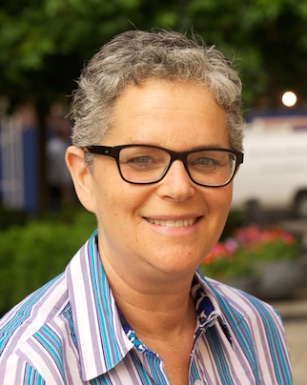Hollis Glaser

Professor
Speech, Communications and Theatre Arts
EMAIL: hglaser@bmcc.cuny.edu
Office: S-629
Office Hours: MWTH 1:00-2:00
Phone: +1 (212) 220-8000;ext=5592
Hollis Glaser earned her Ph.D. at the University of Illinois in Speech Communication, focusing on Organizational Communication. Her dissertation studied the way small group trying to organize without a hierarchy negotiated power. After graduate school she worked at the University of Nebraska at Omaha (UNO) until 2006. At UNO she taught Persuasion, Small Group Decision-Making and Introduction to Women’s Studies. She also studied local foodways and was active in the LGBTQ community. She also taught as a visiting associate professor at Pace University between 2001-2003. In 2006, Prof. Glaser moved to New York City to teach at BMCC. BMCC is truly her academic home where she teaches public-speaking, small group decision-making, introduction to communication studies and is active in a variety of committees including the Academic Senate. Prof. Glaser loves her colleagues and students and New York City and is happy to be here. She also love dogs and is trying to learn everything she can about permaculture and new ways of communicating for this new age in environmentalism.
Expertise
Democratic Organizing, Shared Governance, Small Group Decision-Making, Social Permaculture.
Degrees
B.A. in English Literature from Washington University in St. Louis, 1982
M.A. in Speech Communication from the University of Illinois, 1988
Ph.D. in Speech Communication from the University of Illinois, 1994
Courses Taught
- Introduction to Communication Studies is a survey course that examines major research areas, perspectives, and theories within the field of communication studies. The course will introduce and review key approaches to the study of human interaction, rhetoric, language, persuasion, and cultural processes across diverse contexts. Specifically, the course provides an interdisciplinary framework from which students will think seriously about how culture and society are constructed in our communicative practices, explore how language and meaning structure our reality, as well as examine the social, cultural, and political impacts of human communication as it unfolds in varied fields including interpersonal communication and conflict resolution, intercultural communication, rhetoric, media studies, as well as organizational and small-group communication.
- This is a class in small group communication. It covers communication dynamics such as group development, decision-making, discussion, leadership, roles, norms, and conflict. Text and lectures focus on small group communication theory, concepts, and processes. A significant part of the class consists of learning the material through class exercises, participation in a variety of small groups, and reflecting on those experiences.
- The aim of this course is to develop effective skills in speech communication. The student examines how to generate topics and organized ideas, masters elements of audience psychology and practices techniques of speech presentation in a public forum. All elements of speech production and presentation are considered.
- The focus of this course is to provide an understanding of the influence and impact on our lives and society by the mass media. The course examines the history, law, technology, economics and politics of the mass media through independent study, field trips, etc. Students are encouraged to be aware of techniques of influence used by the mass media to influence and determine social and political values. In addition, students learn to develop tools for critical analysis of and standards for discriminating consumption of the mass media.
Prerequisite: SPE 100 or permission of department - The aim of the course is to provide the student with advanced experiences in the preparation and analysis of oral presentations for professional, nonprofessional, and academic situations. A detailed study of the principles and theories of public speaking is made. The course includes the presentation of student speeches. Prerequisite: SPE 100 or permission of department
Research and Projects
American Association of University Professors
New York State American Association of University Professors
Currently studying decision-making in radical environmental organizations.

